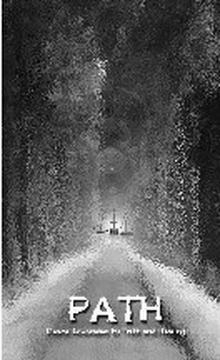
We intend to undertake a series of activities that would bring clarity to the mysteries surrounding these purges, as well as provide support to direct and indirect victims towards giving proper closure and building a culture of peace. We hope to complement the rich and sustained human rights work in the Philippines and promote the notion of human rights universality by looking into atrocities that have been ignored for the most part and for a long time now.
BACKGROUND OF PATH
Our initial formative gatherings were well attended by individuals who came from the human rights community, such as Amnesty International Philippines, Balay, Families of Victims of Involuntary Disappearance (FIND), Coalition for Peace, and GZO Peace Institute; the academe - UP Center for Investigative and Development Studies and the UP History Department; media - Business World, Philippine Daily Inquirer, etc.; and other development NGOs - Popular Education for People's Empowerment, Institute for Popular Democracy, Policy Review and Editorial Services, etc.). Many of these constituted the core of PATH and are committed to build it as a distinct human rights organization in the Philippines.
PATH recognizes the fact that the State and its military machinery were responsible for most human rights violations in the Philippines, especially during Martial Law but also in the subsequent administrations. Many human rights groups were organized around them. It is undeniable, however, that 'non-State actors- committed acts of atrocity as well, in this case by the CPP-NPA.
These bloody anti-infiltration purges, which happened in the 1980s, include: Oplan Kadena de Amor in Southern Tagalog (1980), Kampanyang Ahos in Mindanao (1985-86), Oplan Missing Link in Southern Tagalog (1988), the nationwide campaign Olympia (1988-89), and many others yet unreported. In these purges, thousands of revolutionaries were detained, tortured and killed.
We believe that many tasks need to be done in order to address and put a proper closure to this tragedy. We realize that the most immediate tasks are to find the remains of those who were killed, to properly inform their families, and to provide them a decent burial.
Beyond this, PATH intends to undertake other tasks, such as:
1. Make a full accounting. 600 to 900 were said to have died during the Kampanyang Ahos. Sixty-six were killed during OPML (Oplan Missing Link) and fifty-five survived. We do not have the figures yet for Olympia, nor the Kadena de Amor, nor in the purge that happened in Cagayan, and other unreported cases in various provinces of the country. PATH recognizes the need to identify all individual victims and honor them as individual heroes.
2. Push for an objective, impartial investigation. The purges involved death, torture, and illegal detention. It is imperative that these be investigated, no matter how much time has lapsed. We believe that justice will only be served if accountabilities are established.
3. Undertake a process of healing. The deep traumas caused by this carnage left superficial scars, while deeper wounds remain unhealed. We at PATH believe that the wounds may need to be reopened if they are to heal properly. Therapy requires truth, healing requires unburdening.
We hope that through these efforts, we could ultimately pave the way for the creation of a Philippine Truth Commission. We envisage this to be an independent body that would look into all human rights violations committed in the country in its recent history perpetuated by all political players - whether by the State or armed groups. Furthermore, we seek a redefinition of the role of the left in Philippine society, informed by a deliberate process of self reflection, examination and critique towards deeper respect for human rights and appreciation of the ideals of democracy.
Related Article
 Home | Aims and Objectives of Solidarity Philippines Australia Network | About Kasama
Home | Aims and Objectives of Solidarity Philippines Australia Network | About Kasama 
Search the SPAN Web